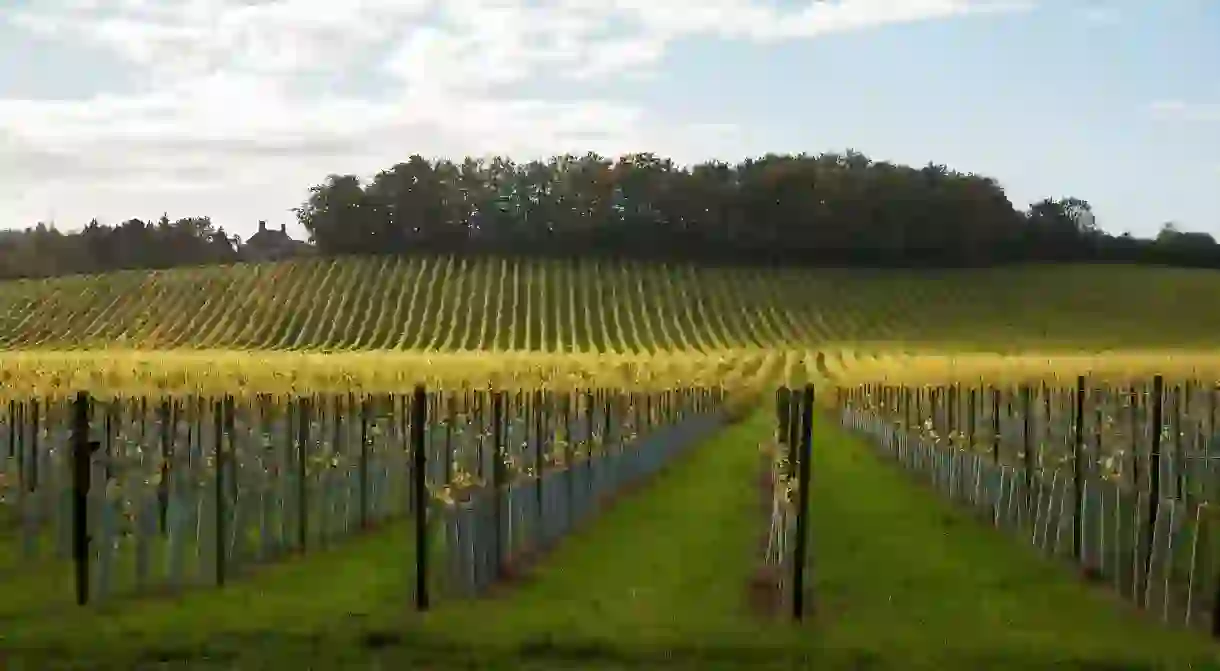An Unexpected Victim: How Covid-19 Is Impacting the Wine Industry

Wine permeates so much of our lives – from a glass with friends to pairing it with food at your favourite restaurant, or sinking into the couch with a tipple after a long day at work. While the first two options have evaporated during lockdown, it is the latter that has become increasingly popular.
With many of our social options removed during this time, more people than ever have been turning to wine. A recent study has shown that drinking in Britain was up 61 per cent during lockdown. Meanwhile, delivery companies have had to postpone deliveries as they struggle to keep up with demand. And yet, what would everyone drink if wine became increasingly scarce?
This is the reality many winemakers and vineyards are facing as Covid-19 encroaches upon their world. It’s an international industry in every capacity – from the workers who travel the world for the vintages in different countries each season, to the global distribution of the product.

Wine lists read like a world map: chardonnays from California, sauvignon blancs from Marlborough, New Zealand, montepulciano wines from Italy are all available in restaurants across central London.
Winemaking in England has been growing rapidly in recent years due to a combination of factors, including climate change allowing more favourable grape-growing conditions, and a number of knowledgeable winemakers producing some spectacular wines. While most English vineyards don’t harvest their grapes until October, the effects on the industry are already evident.
Bob Lindo, founder of Camel Valley wines in Cornwall, says the most significant impact has been with trade customers due to the closing of the cellar door, and the impact on distribution. However, he added, that there will be knock-on effects of the coronavirus on wine production. “The world will never be the same,” he says, citing restaurant closures and lower capacity for those that do reopen as just some of the changes that will impact wine sales.

Mark Driver, owner and founder of Rathfinny Estate, concurs. “The main effect has been on our tourism business. We’ve had to close our Tasting Room restaurant, our Flint Barns accommodation, and temporarily the Cellar Door.”
Driver has also had to “pivot the business”, as he puts it, because most of his premium sparkling wine is sold in bars, hotels and restaurants. With all of these venues closed for now, the focus is with independent wine merchants.
While he employs a large number of locals to help with harvesting, Driver believes there will be issues for other UK-based wineries. “The majority of vineyards in the UK rely on European labour, and many of those people went home at the start of the pandemic and need to get back here for harvesting,” he adds.

Meanwhile, in South Africa, the country-wide lockdown came into effect in the middle of the harvest season. Grapes are a tricky business, having only a short window of optimum ripeness each year, within which you need to harvest them. If they are left too long, they begin to rot, and the whole year’s crop is ruined.
South African winery Springfield Estate posted on Facebook about the lockdown, sharing their heartbreak with fellow producers, “whose very livelihood will be left to rot on the vine”. Jenna Bruwer, from the estate, tells Culture Trip that while they were fortunate to have finished harvest and 90 per cent of all ferments by the time lockdown came into effect, some of their friends in the industry still had 700 tonnes of grapes to bring in. That’s almost 480,000 litres, or 650,000 bottles.
As well as the delay to the harvest in South Africa, there has been a complete ban on the sale and transportation of alcohol for the duration of lockdown. This has effectively reduced income for wineries to zero, and eliminated any possibility of exporting during this time, leaving international stores unable to replenish stock.
Bruwer also outlines another hurdle. “Personally, our biggest concern is for when we need to start pruning in June, and if we still have to work with a reduced workforce – our pruning is all done by hand, and takes around three months of working at a breakneck pace to get through all the vineyards. Should this be affected, it is a serious concern for the next vintage and all the subsequent vintages going forward,” she adds.
The effect of Covid-19 on the wine industry will be widespread, and may make itself evident in ways that cannot yet be predicted. As an industry that has been around for centuries, there is no doubt it will find ways to survive and adapt; however, it will likely have a permanent impact on workforce, supply chains and consumer behaviour.
As Bruwer points out – those wines that were being saved for a special occasion are being drunk now more than ever, as waking up safe in a warm bed becomes a luxury worth celebrating. One thing is for sure: when we are allowed to gather again, to sit around a table sharing a meal and a drink with our loved ones, it will be these special wines we turn to, and the industry will flourish once again.













